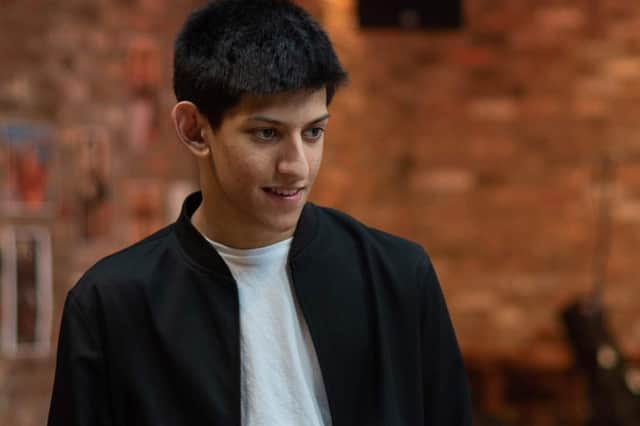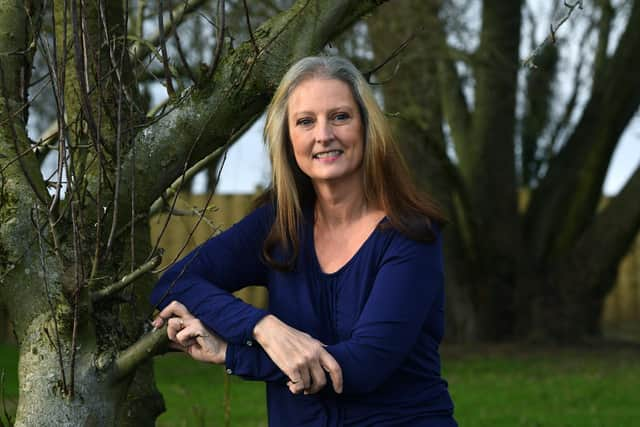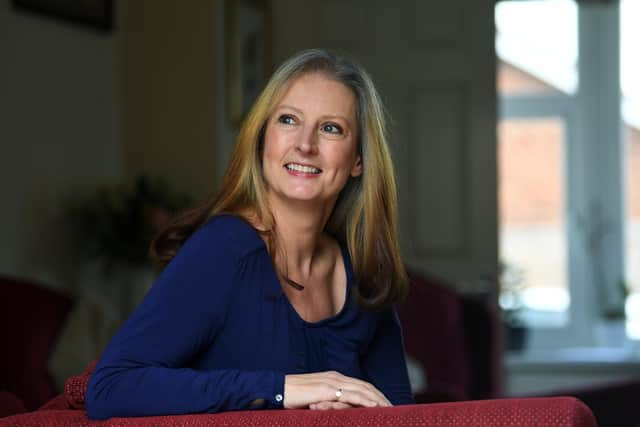York mum tells why she is having a healthy kidney removed to save her son


There isn’t much a mother wouldn’t do for her child. But would you give them one of your organs?
Well that’s exactly what Amanda Selvaratnam has decided to do.
Advertisement
Hide AdAdvertisement
Hide AdAnd she hopes by telling her story not only will she change the life of her son Philip but she will encourage other people to become living donors.


Philip, now 22, was born with blocked valves which meant his kidneys didn’t work properly.
“Phil was my second child, but I’d never had a boy before. He failed to thrive and lost weight when he should have been putting it on,” says Amanda, who works at the University of York. It took three months for Philip’s condition to be diagnosed.
“By then he was quite sick and had to have a couple of operations. We were told that he would need a kidney transplant when he was older, but as time went on and he seemed quite well you sort of forget about it.”
But then he started to deteriorate.


Advertisement
Hide AdAdvertisement
Hide Ad“When he hit puberty we realised that he was going to need a kidney transplant sooner rather than later,” she said.
Amanda dreaded the idea of her son going through months and possibly years of dialysis as he waited for a suitable kidney to become available on the transplant list.
It was then she discovered that you could become a living donor.
“When we first started talking to his consultant about becoming living donors Phil was still under 18 so we were allowed to be with him during his consultations.
Advertisement
Hide AdAdvertisement
Hide Ad“The consultants aren’t allowed to suggest becoming a living donor to you so we had to ask.”
In the UK living kidney transplants have been performed since 1960 and currently around 1,100 such operations are performed each year, with a very high success rate.
Parts of a liver can also be donated, but the most commonly donated organ by a living person is a kidney, with around a third of all kidney transplants carried out in the UK from living donors. A healthy person can lead a normal life with only one functioning kidney and therefore they are able to donate the other to help someone in need of a kidney transplant.
As well as often being quicker than waiting for a kidney on the waiting list, a kidney from a living donor (rather than one from someone who has died) offers the recipient the best opportunity of success as living donor kidneys usually last longer than those from deceased donors.
Advertisement
Hide AdAdvertisement
Hide AdGenerally people who receive a kidney from a living donor live for longer than those who receive one from a deceased donor and much longer than they would be expected to live if they did not receive a kidney transplant.
Amanda, her husband and their eldest daughter all asked to be tested to see if they were suitable donors for Philip.
“We all had to speak to the donor co-ordinator at the hospital and she talked us through the process and checked we understood.”
They were all sent for blood tests and it was discovered that they were all compatible donors.
Advertisement
Hide AdAdvertisement
Hide Ad“It was amazing that we were all compatible. You presume because you are their parents you will be a match but that’s not always the case.
“My daughter was actually the best match for Phil but because she was younger and hadn’t had children they chose me. I am in pristine health as I run a lot and stay fit and healthy,” says the 57 year old.
Since then Amanda has had to go through numerous tests and counselling to make sure that she and Philip were both fit and healthy for the transplant to go ahead on February 22.
“We’ve virtually put ourselves in isolation as we don’t want to get Covid and put the whole thing in jeopardy,” says Amanda. Next week’s operation will take place at Leeds General Infirmary but due to Covid restrictions mother and son will be in totally different parts of the hospital.
Advertisement
Hide AdAdvertisement
Hide Ad“I should be able to come home the following day after surgery if all goes according to plan,” says Amanda. “It will take six weeks for me to feel normal although I can start to do light exercise after around three weeks.
“I am a keen runner and as part of my recovery I am hoping to be able to slowly get back to running over the next year with the aim of running a half or a full marathon in a years’ time to raise money for kidney research. I am sure there will be other donors or recipients who have set themselves exciting targets or developed bucket lists post-transplant.
“Philip will come home ten days later after receiving my kidney. His diseased ones won’t be removed but the new one will take over all the functions.”
Someone can survive with 50 per cent kidney function, hence the fact Amanda is able to donate one of her kidneys to Philip who live in Nottingham.
Advertisement
Hide AdAdvertisement
Hide AdAt the moment he is living with just 10 per cent kidney function and without his mum’s donation he would inevitably end up on dialysis waiting for a kidney to become available from either an altruistic donor or a deceased donor which could take at least two years.
Amanda is looking forward to giving Philip her kidney and seeing the difference it makes to him,
“He doesn’t know what it is like to live with a functioning kidney. One of the problems with kidney disease is the lack of energy. He used to play football and he can’t do that any more. He got into ultimate frisbee when he was at university and was on a team but he struggled even to do that at the moment and he is a volunteer.”
And it is the lack of energy that really affects Phil’s quality of life.
Advertisement
Hide AdAdvertisement
Hide Ad“I feel rather tired day to day with mornings being hard most days, the lack of energy means I have to say no to things quite a lot which is frustrating. Additionally, Covid has thrown so much in the air and means I’m always on ‘guard’ with regards to what is ‘safe’ for me to do. Not wanting to get Covid (as it would make me very ill I imagine). Having to always be thinking about Covid and my health has taken a toll.”
“I’m really thankful to my mum, I know she’ll say it is an easy decision but it still means a lot to know that she is willing to put herself through an operation and long recovery to give me one of her kidneys,” he adds. “It means I can avoid dialysis and regain a ‘more normal’ life. I’m looking forward to get back into all the sports that I’ve missed out on. I hope that my new energy levels give me a spark in my work and volunteering that I do, I want to be able to perform at my best in all I do and having more energy will definitely allow that to happen.”
Amanda adds: “He knows that I really want to do this. But it is really hard when you know your mother is doing something that’s painful. But the risk to me is minimal and it is something that I am so pleased to be able to do for him.”
www.organdonation.nhs.uk
World Kidney Day is on March 10